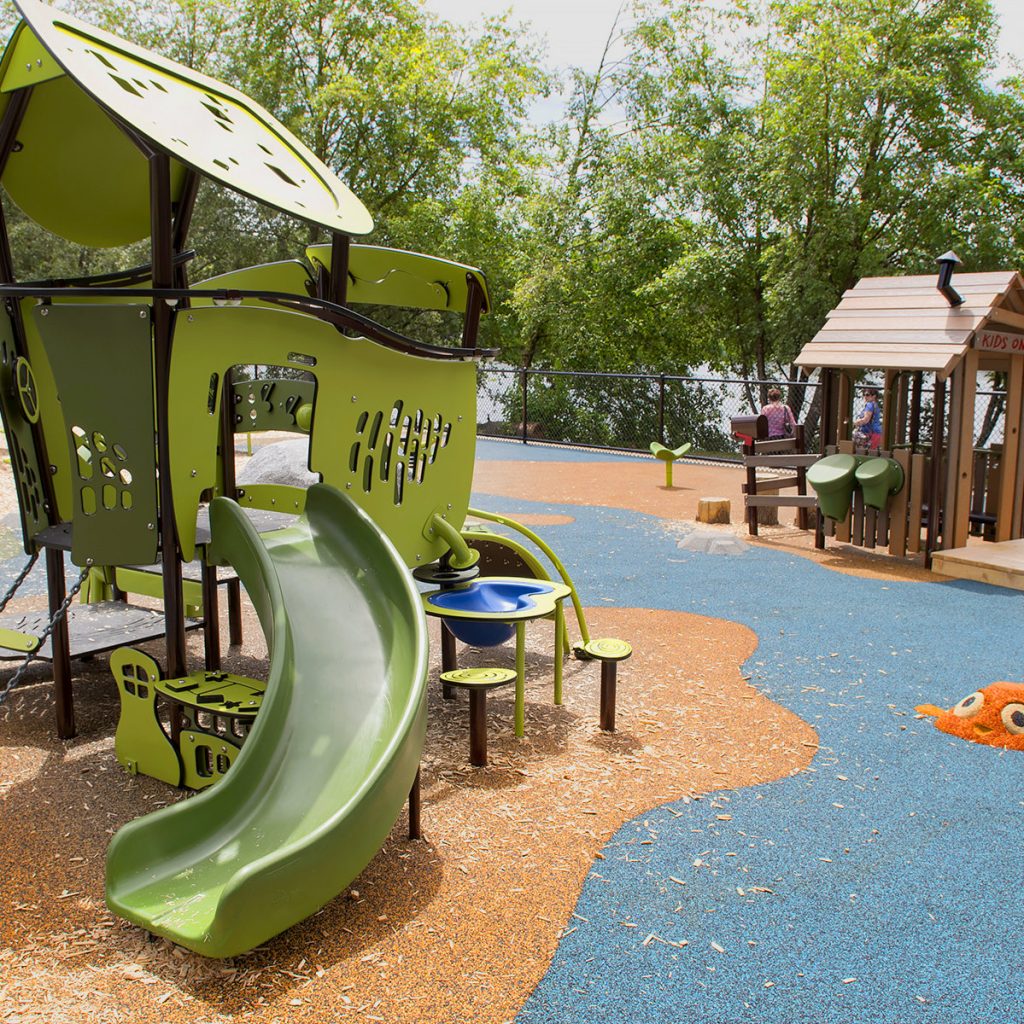Tire Recycling in BC
What Happens to Scrap Tires?
Every tire can be recycled.
Every tire on the road can become something new. Athletic tracks; playground surfaces; recreational flooring; mats and flooring for farms and factories; additives for rubberized asphalt; and even landscaping mulch can all be made from recycled tires. In BC, unlike some other provinces, all scrap tires collected are also re-purposed in the province. There are two companies located in Delta, Liberty Tire Recycling and Heidelberg Materials, that have helped us with that since 1991.
The majority of BC’s scrap tires are recycled by Liberty Tire Recycling into fine granules of rubber (crumb rubber) for sale to a variety of markets in BC, the rest of Canada, and the US. This crumb rubber is used to create the flooring and other surfaces mentioned above. Click to learn more about each of these tire-derived products. Also, to see how the province’s tires are recycled, watch this video filmed right at the recycler in Delta.
Over 90% of British Columbia’s tires are recycled, with the remaining tires used by Heidelberg Materials as a fuel supplement, to cut down their use of fossil fuels.
And everyone has a role.
The vision of Tire Stewardship BC is an environment free of scrap tires. To make this happen everyone plays a part, from Our Partners including the retailers that sell the tires, the haulers that pick up the scrap tires, and the processors and manufacturers that give the tires a second life. And of course, you are the most important participant when you make the right choice to recycle your tires.
How tire recycling is funded.
Every new tire that’s sold in BC comes with an Advance Disposal Fee (ADF), more commonly known as an Eco Fee, which is remitted to TSBC. The size of the fee varies by tire type so we can properly account for the higher cost of collecting and recycling the various tire sizes. It’s a small price to pay to keep our communities clean.
Most tires have a fixed ADF of $6.50. This includes tires for cars, light trucks, motorcycles, ATVs and free-rolling farm vehicles. Medium truck tires are $14, Agricultural Drive Tires are $15, and Logger & Skidder Tires are $35. Want more detail about what tires are included in the BC Recycling Regulation? Just go to Eco Fees.
And to be fair, inspection stations collect the ADF on cars imported into Canada from the US. More information on the Registrar of Imported Vehicles program can be found here.
All revenue collected from the ADFs is used exclusively for recycling and program activities. Almost 90% goes to the processors and haulers to collect, transport, and recycle the scrap tires. In fact, BC enjoys one of the highest diversion rates in the country with virtually no stockpiles. The remainder of the funds go to program management, the Community Grant Program, and other activities such as consumer education and awareness initiatives, and R & D.

Why Tire Recycled Products Are The Way Forward
Whether it’s safety, accessibility, or simply to be environmentally responsible, there are many benefits to recycling used tires into new products in BC.
Bicycle Tire Recycling
Bicycles and automobiles have a lot in common. Both share the same roads, both have rubber tires, and both types of tires can be recycled.

